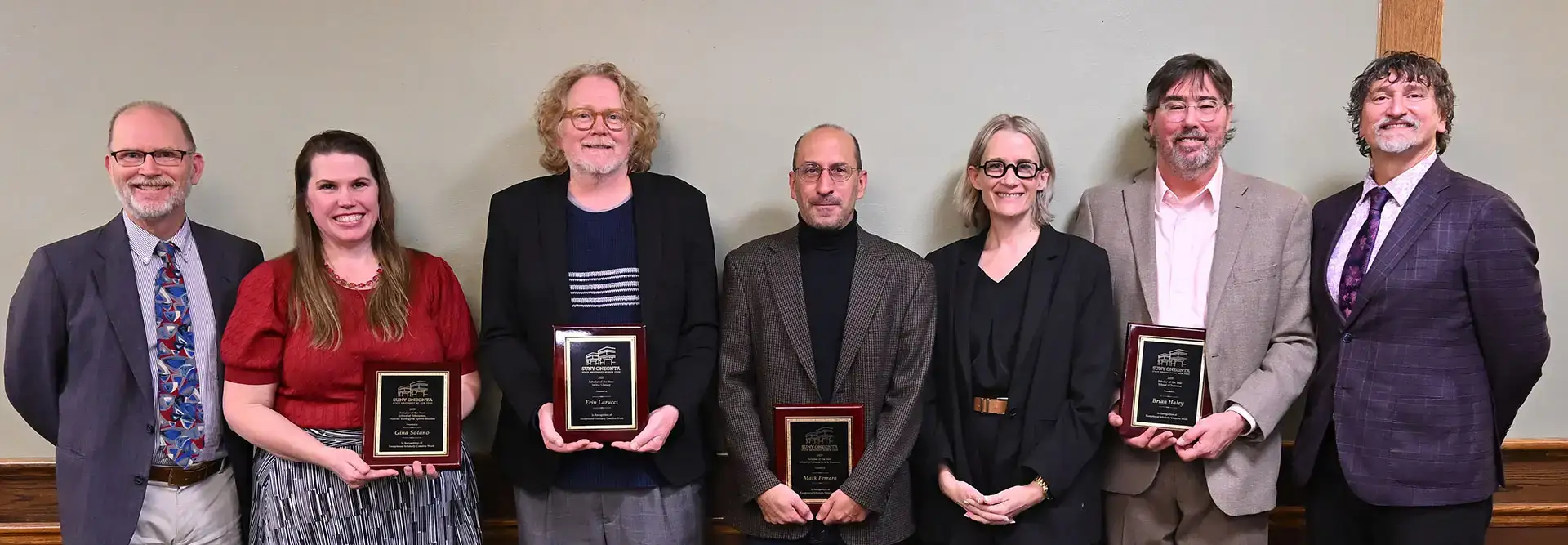What can we learn from the academic examination of striped bass in the Hudson Valley, Korean surfers, the history of massacres in the Mohawk Valley and tiny homes on TV? As it turns out, a lot. Looking at the world with different perspectives, SUNY Oneonta professors and staff members are generating conversations that help us engage in learning and research in our classrooms, lecture halls and beyond.
This week, SUNY Oneonta showcased the research, service, teaching, creative and scholarly activities of its instructors and staff members at annual Life of the Mind XVI and Community of Scholars events.
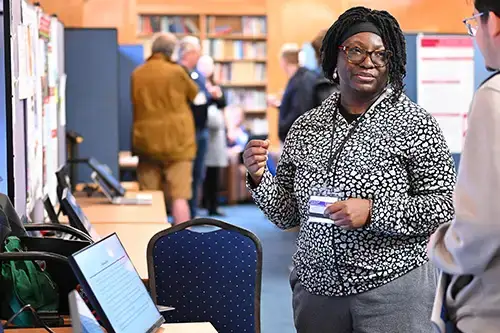
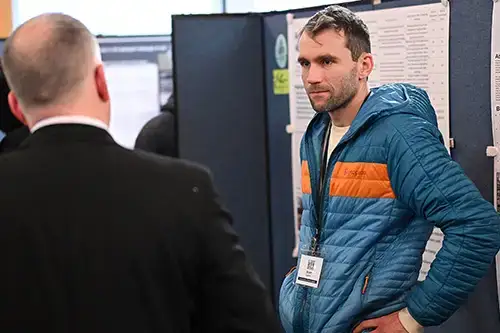
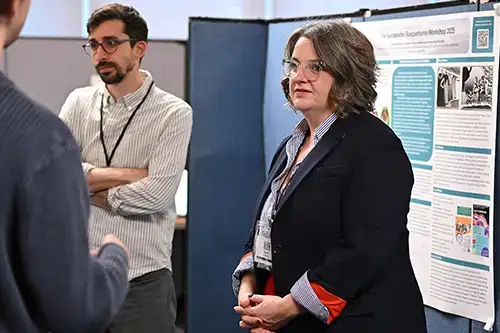
The Life of the Mind XVI, held on Nov. 12 and 13 in the Craven Lounge in the Morris Conference Center, gave students, staff and faculty the opportunity to inspire and celebrate learning in a collaborative environment. Featuring 65 research and creative projects undertaken by faculty and staff from 28 different departments and offices, attendees engaged in conversations about libraries are liberating landfills, how mollasks respond to environmental change and the exploration of using ChatGPT in math lesson planning.
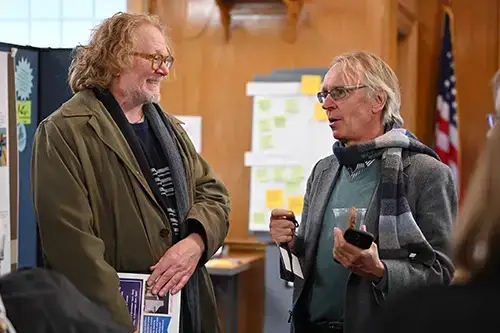
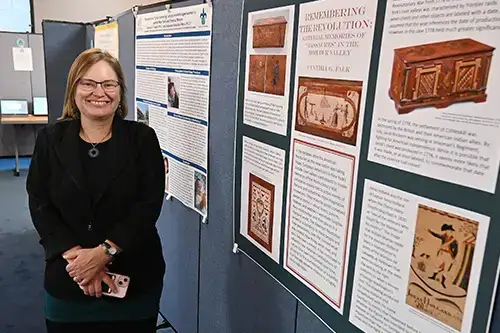
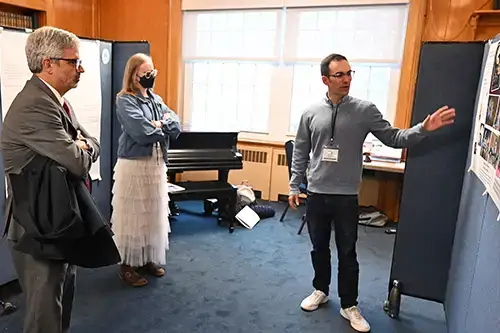
Research informs and enriches the classroom experience for students, making us better teachers.”
“Scholarship is about finding solutions to problems, expanding knowledge and creative works, and advancing our understanding of the world,” says Dean of the School of Sciences Dr. Tracy Allen. “Research informs and enriches the classroom experience for students, making us better teachers.”
On the evening of Nov. 13, Provost and Vice President for Academic Affairs Enrique Morales-Diaz hosted the Community of Scholars reception at the Otsego Grille in Morris to recognize the four 2025 Scholars of the Year:
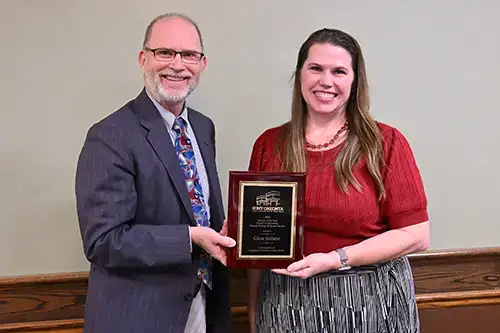
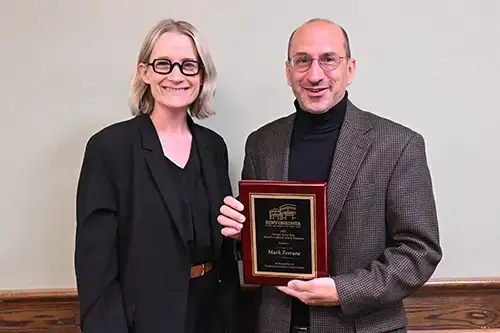
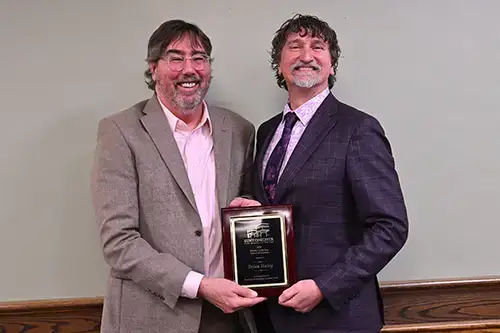
Erin Larucci is the Emerging Technologies Librarian at the Milne Library. She played the central role in designing and launching the new dynamic, user-centered library website in 2024. She also established the Milne Library Digital Humanities Internship, giving students hands-on experience in creating a research database. Her current scholarship focuses on the “Transcripts of Tamriel” database, which analyzes trauma-oriented language in online role-playing narratives.
Gina Solano is an Assistant Professor of Secondary Education and Educational Technology with the School of Education, Human Ecology and Sports Studies. She co-authored two chapters entitled “Creating Immersive Learning Experiences Using ThingLink to Teach Middle School Geography Skills” and “Usine Multi-touch Interactive Whiteboards by High School Teachers to Promote Active Student Participation in the Classroom” in A. Gierhart (Ed.) Cases on Enhancing P-16 Student Engagement with Digital Technologies.
Mark Ferrara is a Professor of English with the School of Liberal Arts and Business. He authored The Raging Erie: Life and Labor Along the Erie Canal. He has been interviewed and featured in outlets such as China Daily and Inside Higher Ed, and on radio programs including WNYC’s “All of It with Alison Stewart” and WXXI’s “Connections,” and he has been actively engaged in public talks across New York State on the history and contemporary resonance of the Erie Canal. His ability to translate rigorous research into accessible, compelling narrative invites a wide audience into conversations about labor, inequality, community, and the forces that have shaped both our past and our present.
Brian Haley is a Professor of Anthropology with the School of Sciences. He is widely regarded as a leading authority on the construction and contestation of ethnic and Indigenous identities. His landmark monographs – “Reimagining the Immigrant: The Accommodation of Mexican Immigrants in Rural America” and most recently “Hopis and the Counterculture: Traditionalism, Appropriation, and the Birth of a Social Field” - demonstrate the depth, originality, and ethical clarity that characterize his research.
View photos from the Life of the Mind View photos from the Community of Scholars Awards
